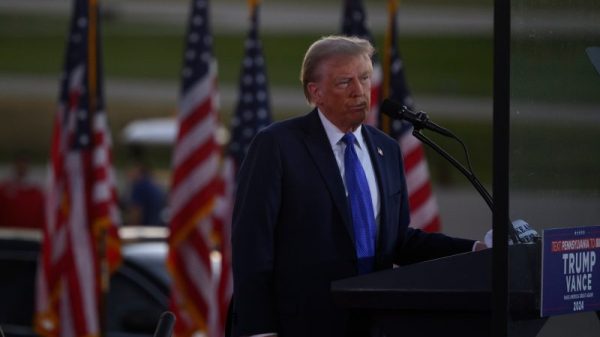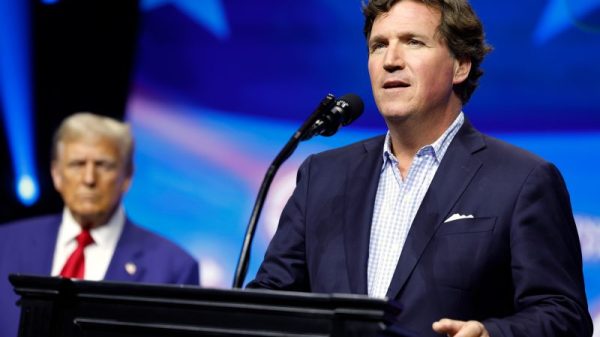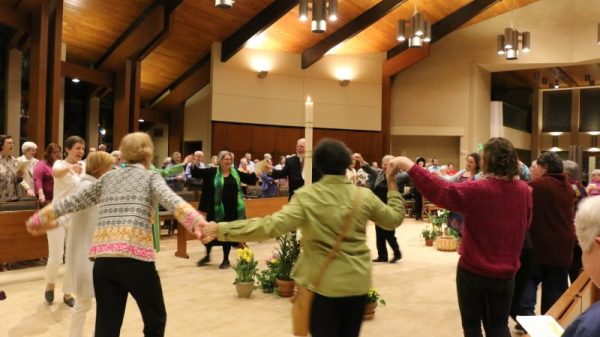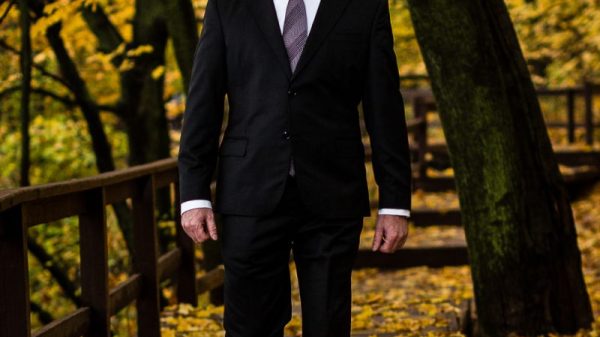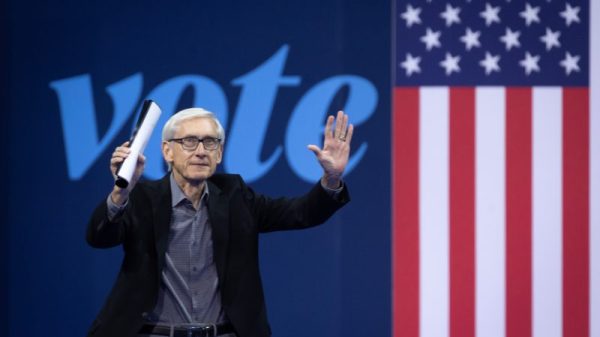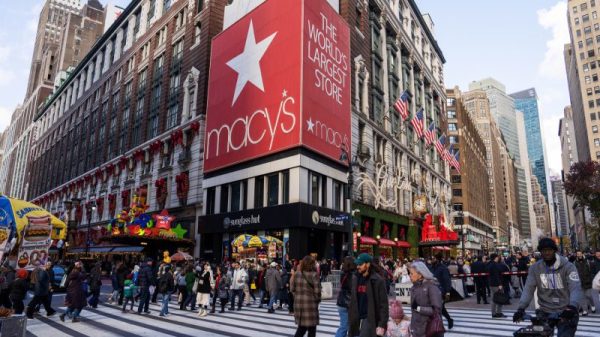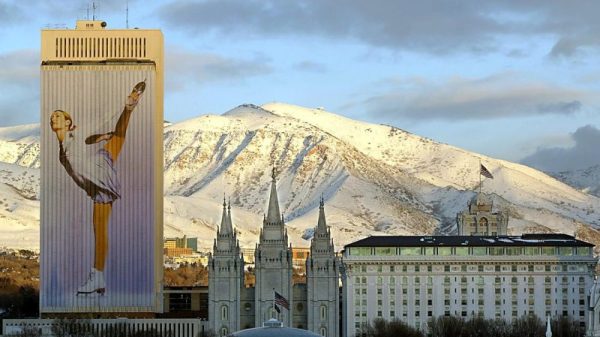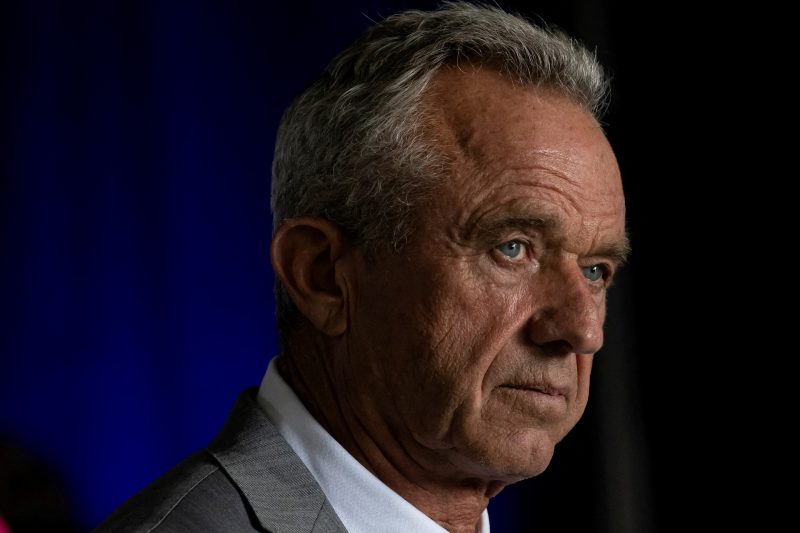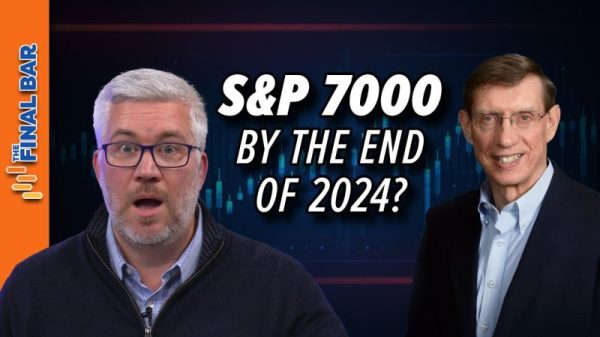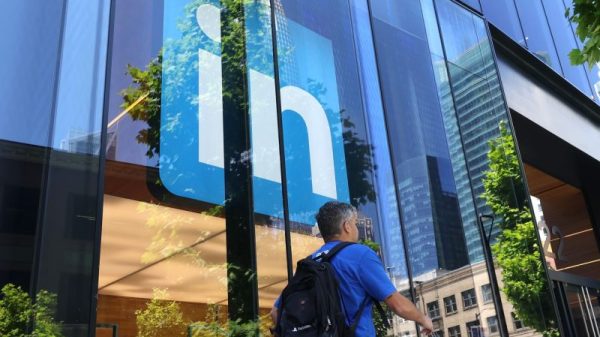The presidential campaign of independent candidate Robert F. Kennedy Jr. announced Wednesday it had filed a complaint with the Federal Election Commission about Kennedy’s potential exclusion from a planned June 27 debate on CNN between President Biden and former president Donald Trump.
In the complaint, filed on Tuesday, Kennedy’s campaign alleges that Biden, Trump, their respective campaigns and CNN “colluded” to leave Kennedy off the debate stage. The complaint also alleges that CNN’s decision to hold the debate could be tantamount to the network making “prohibited corporate contributions” to Biden and Trump’s campaigns and thus violate the Federal Election Campaign Act — a claim met with dubiousness by one campaign finance expert.
Kennedy’s campaign is asking the FEC to act no later than June 20 to prevent the debate from taking place “until the Parties have come into compliance with the Federal Election Campaign Act,” to impose any appropriate fines and provide other remedies as necessary.
Representatives for Biden’s and Trump’s campaigns did not immediately respond to requests for comment Wednesday.
Earlier this month, Trump said he was willing to debate Biden at the two times in June and September that Biden had proposed, rather than at the traditional meetings organized by the bipartisan Commission on Presidential Debates. Soon after, both candidates announced they had agreed to two televised debates: one on June 27 hosted by CNN and another on Sept. 10 hosted by ABC.
That same day, Kennedy on social media accused Biden and Trump of “colluding” to exclude him from the debate stage.
Polls have shown Kennedy would not have qualified to appear on the debate stage if Biden and Trump had agreed to meetings organized by the bipartisan Commission on Presidential Debates. However, the networks’ proposed rules opened a path for Kennedy. To qualify for the CNN debate, candidates must by June 20 appear on enough state ballots that would give them a path to reach 270 electoral votes, as well as receive at least 15 percent in four national polls that meet the network’s standards. The ABC debate has similar qualification requirements.
Aides to Kennedy predicted he would be on track to get enough ballot access by June 20 if they sped up their timeline for turning in signatures. Last week, Kennedy campaign spokeswoman Stefanie Spear noted that Kennedy had reached the 15 percent threshold in the third of his four polls needed to qualify for CNN’s debate.
Kennedy’s campaign has acquired the signatures or expects to soon for states that would add up to 270 electoral votes, but is not sure if states will certify the results in time, according to a person familiar with the plans who spoke under the condition of anonymity to discuss private conversations. The campaign is also aware that their early submission of signatures could give Democrats and others the opening to file objections in states where it is seeking ballot access.
“Some experts today question how much impact debates have when partisan identities are so strong that people watch to cheer on their candidate, rather than to make up their minds,” Kennedy wrote in an op-ed for Newsweek last week. “But this election is an exception, because a wild card has entered the stacked deck of two-party politics. That wild card is my insurgent candidacy, which defies polarizing left-right categorization.”
But Biden advisers said earlier this month that they had told CNN the president would only participate in debates that were one-on-one with Trump and that they did not agree to another debate Trump suggested, on Fox News in October. The same day, a Trump campaign official said a CNN producer had given assurances in a call that “RFK will not be on the stage,” after describing the criteria for the event.
In its FEC complaint, Kennedy’s campaign cited those reports as evidence that CNN set its debate requirements merely to exclude candidates who were not Biden or Trump.
“CNN did not adhere to the regulations and select the debate participants using pre-established and objective criteria,” the complaint states. “Instead, and what is clear from the record, CNN allowed candidates Biden and Trump to set the criteria and therefore select themselves as the only participants.”
Saurav Ghosh, director of federal campaign finance reform at the nonprofit Campaign Legal Center, said it would be an “uphill legal climb” for Kennedy’s campaign to successfully argue that CNN hosting a debate with only Biden and Trump was effectively a corporate campaign contribution.
“I think the challenging aspect of that argument is that CNN is a for-profit media corporation, and they can make decisions about what is ultimately their business interest, [such as] who to include in an event that they’re airing and they’re trying to get as many eyeballs as possible,” Ghosh said Wednesday. “Discretionary decisions about which candidates to invite to that program I think could be pretty easily defended on the ground that commercial decisions are what’s driving that.”
Under the Federal Election Campaign Act, costs incurred by media organizations in covering a news story are also exempt from being considered campaign contributions, unless the outlet is owned or controlled by a political entity. In its complaint, Kennedy’s team argues that CNN’s actions in this case do not meet the requirements for the media exemption because organizing a debate is not “a news story, commentary, or editorial” but rather “an activity that may give rise to a news story.”
Ghosh said he could see the argument on both sides but disagreed that the media exemption did not apply. He pointed out that there have been previous FEC complaints that unsuccessfully argued that being excluded from a media-sponsored election event is itself a violation of federal campaign law.
“I think that logic is the same whether it’s a town hall event or it’s a debate,” Ghosh said. “There’s sort of a basic First Amendment interest in making sure we have robust coverage of election candidates … At least in spirit, it does seem like the media exemption is still relevant here.”
Michael Scherer contributed to this report.






